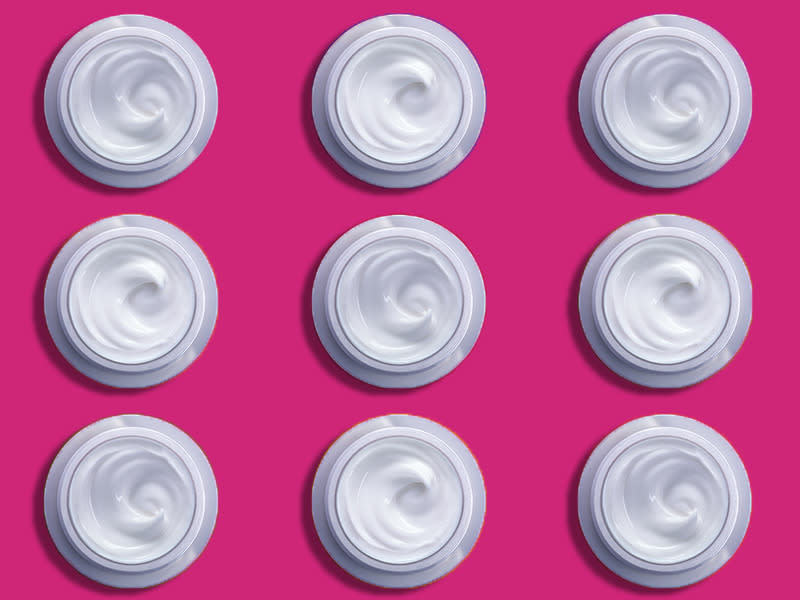Can These Popular Face Creams Extend Your Life?

The secret to living a longer life might already be in your bathroom. (Photo: Getty Images)
Scientists from the University of Liverpool have pinpointed an ingredient that can extend life span by 20 percent — and it’s found in several popular face creams. Allantoin, a chemical compound that softens and protects skin while stimulating cell regeneration, shows up in creams made by Olay, Murad, and L’Oreal, to name a few.
Allantoin mimics the life-increasing effect of a fasting diet, which research has shown can slow the aging process. But, unlike a calorie-restricted diet, the skincare ingredient skips the not-fun-at-all hunger side effect.
For their research, scientists used genetic data analysis and testing on worms (since testing anti-aging medications on humans is hard to track). They identified 11 potential compounds and tested five of them on the worms.
Related: What Your Blood Type Says About Your Life Span
The worms that were treated with allantoin, rapamycin (an immunosuppressant that’s known to increase life span), trichostatin A (an antifungal antiobiotic) and LY-294002 (a protein inhibitor) lived longer and stayed healthier longer. The results were published in the journal Aging Cell.
While research was conducted on worms, lead study author João Pedro de Magalhães, PhD, tells Yahoo Health that it has implications for humans, too. However, more research is needed first to figure out just what those implications are.
Related: We’re Not Living Any Longer in America, and Here’s Why
“Caloric restriction is not thought to extend lifespan in humans as much as it does in animal models,” de Magalhães explains. “That said, caloric restriction is known to have health benefits in humans (e.g. protect from cancer), so identifying compounds that confer the benefits of caloric restriction has potential human applications, for example at the level of specific age-related diseases like cancer, neurodegenerative diseases, and Type II diabetes.”
Unfortunately, the worms actually ate allantoin but dermatologist David E. Bank, MD, director of the Center for Dermatology in Mount Kisco, N.Y., tells Yahoo Health that some amount of the products we rub on our skin can seep into our bodies — it’s just hard to say how much would actually get through. “Dermal absorption normally depends on a few different factors, one being the concentration of the ingredients in the product and another being the total surface area in which it is applied to the body,” he explains.
However, Magalhães is doubtful that rubbing allantoin onto your skin will have as big of an effect as ingesting it.
Related: What the World’s Longest Living People Eat (And Avoid)
Before you start eyeing your skin cream for your next meal, know this: Magalhães says his research could pave the way for a drug that would have the same effects. “While further work is necessary to establish the relevance to aging and longevity of the compounds in humans, this might ultimately result in human applications to fight off old age,” he says.
Let’s keep in touch! Follow Yahoo Health on Facebook, Twitter, Instagram, and Pinterest.

